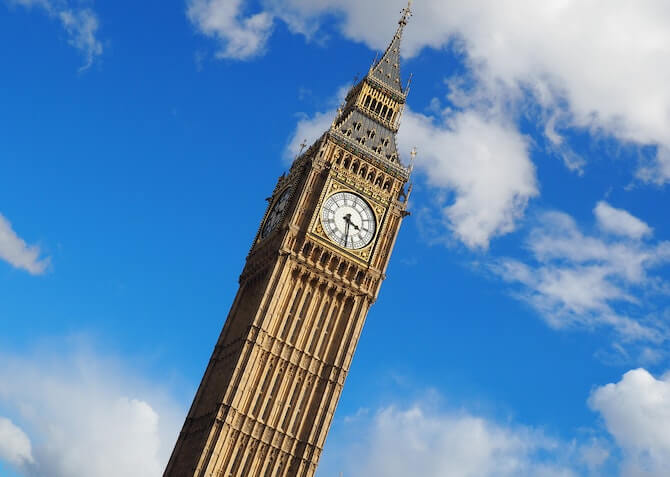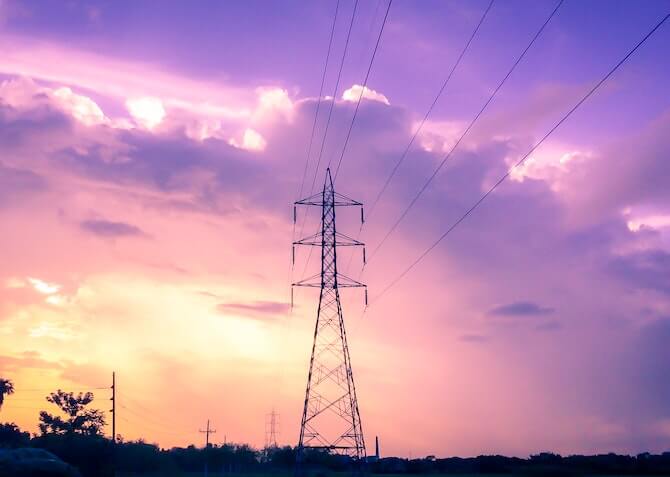
British Summer Time Facts
It happens every year, but we realised we actually knew very little about how and why we change our clocks twice a year. So, we did all the work to find out the details so you don’t need to.
Did you know…?
1. Although it's never quite the same, the clocks always go forward on the last Sunday in March of the Gregorian calendar. This year that makes it Sunday 26th March at 1am.
2. British Summer Time and Daylight Savings Time are the same thing.
3. The practice of changing the clocks was invented by George Vincent Hudson, a New Zealand entomologist in 1895 but the first Brit to suggest it was businessman William Willett who published a pamphlet in 1907 entitled A Waste of Daylight.
In it he claimed that we should make the most of the brighter mornings that come with summer by getting up an hour earlier and having more daylight hours after work.
4. Britain didn’t formally adopt the practice until 1916 after both Germany and Austria-Hungary implemented it as a wartime measure. By which time, unfortunately, William Willett had died. It was thought it might help the war effort, save fuel by adding an hour of natural light and improve the economy by boosting working hours.
5. William Willett happens to be Chris Martin from Coldplay’s great-great-grandfather.
6. All the 2,000 clocks inside the Houses of Parliament are changed at the same time (well, just afterwards); with a team of people working throughout the night to ensure they all show the correct time.
7. The mission to turn back the giant hands on Big Ben’s four clock faces takes an incredible FIVE hours in total.

8. The best way to avoid changing the clocks the wrong way and being two hours out of sync is to memorise the phrase ‘Spring forward, Fall back.’
9. While the UK has always had daylight savings time since it was first introduced, it came into widespread use across the world during the 1970s because of the energy crisis.
10. The practice was temporarily discontinued by the UK government in 1940 when they introduced Double British Summertime instead. At this time, the nation was put two hours ahead of GMT in the summer and 1 hour ahead in the winter. The idea was to increase productivity and ensure people got home before the blackout.
11. Harold Wilson's Labour government experimented with a return to Double BST in 1968, although Scotland protested it left northern parts of the country dangerously dark until 10 am. It was abandoned three years later.
12. Since 1981, European Union directives have ensured a uniform observance of daylight savings time. Until then, many member states had different start and end dates, which made conducting business across the continent difficult. Iceland, Belarus and Russia are the only European countries to opt out of this system and instead remain on the same time all year round.
13. Many have argued for a permanent change to British Summer Time, prioritising sunlit evenings over bright mornings. The Daily Telegraph adds that this would have the economic benefit of putting UK businesses in the same time zone as Brussels, Paris, Frankfurt and Milan. For businesses that operate internationally, this could cut down staff overtime costs - not to mention confusion over scheduling. It would also give the UK an extra hour of overlap with Beijing, Tokyo and other major import and export markets in Asia.
14. Studies in the US National Library of Medicine have shown there is an increase in accidents in the days following the switch as the hour less sleep makes people drowsier. An extra hour of evening daylight could potentially save the NHS £200 million a year in accident-related costs. In addition, the Home Office believes crime would see a 3% drop, as crime is more likely to be committed in the evening than in the morning.
15. A report from the Policy Studies Institute in the mid-1990s estimated that consumers could save £260 million a year on electricity bills by switching permanently to BST. More recently, researchers at the University of Cambridge found that an extra daily hour of sunlight in winter could save £485 million each year, as people use less electricity and heating.

16. Scientists have found that children benefit more from longer evenings, where they can be active for up to 20% for longer but concerns have been raised about the dangers of children walking to school in the darker mornings.
17. Lighter and longer winter evenings could provide an annual boost of £3.5 billion to the tourist industry, according to the Tourism Alliance as businesses would be inclined to stay open longer.
18. The Football Association, The Lawn Tennis Association and the England and Wales Cricket Board have all backed year-round daylight savings, and with good reason. The extra hour of daytime increases the time available for exercise, makes people more likely to attend evening sporting events and means professional athletes can train for longer.
So, what do you think? Would you rather prioritise lighter evenings over lighter mornings? We would love to hear your thoughts below.
Dormeo has a great range of mattresses, bedsteads and divans to suit every bedroom and every budget. All our mattresses whether from our bestselling Memory range or from our luxury Octaspring range, are available in Single, Double, King and Super King sizes and come with our 15 year warranty and our 60 night Comfort Guarantee. We are that sure that you will experience the best sleep that if you don’t agree within the 60-day trial period, we'll happily refund you the cost of the mattress with our ‘No Quibble Refund’.
If you have any questions or queries, we are on hand any time to answer them, free, on 0800 625 0134.








Leave a Reply